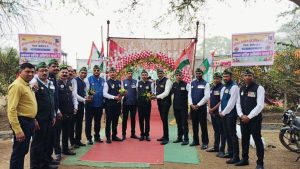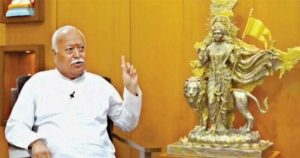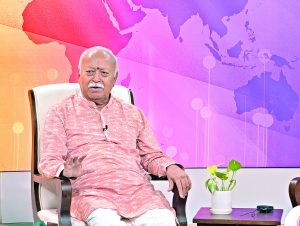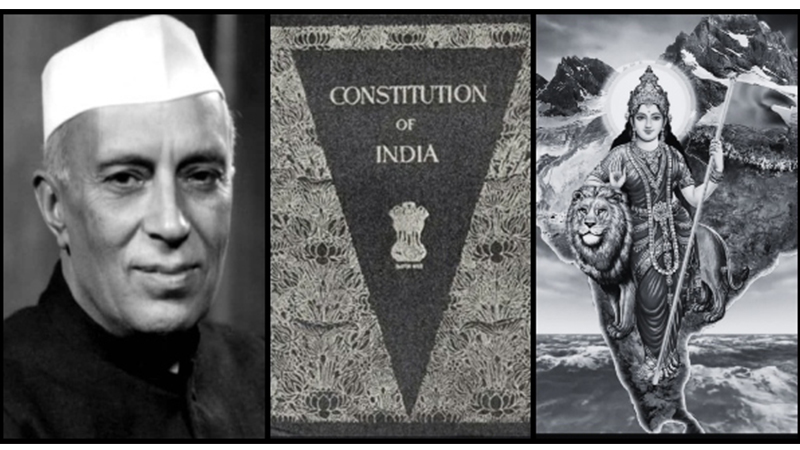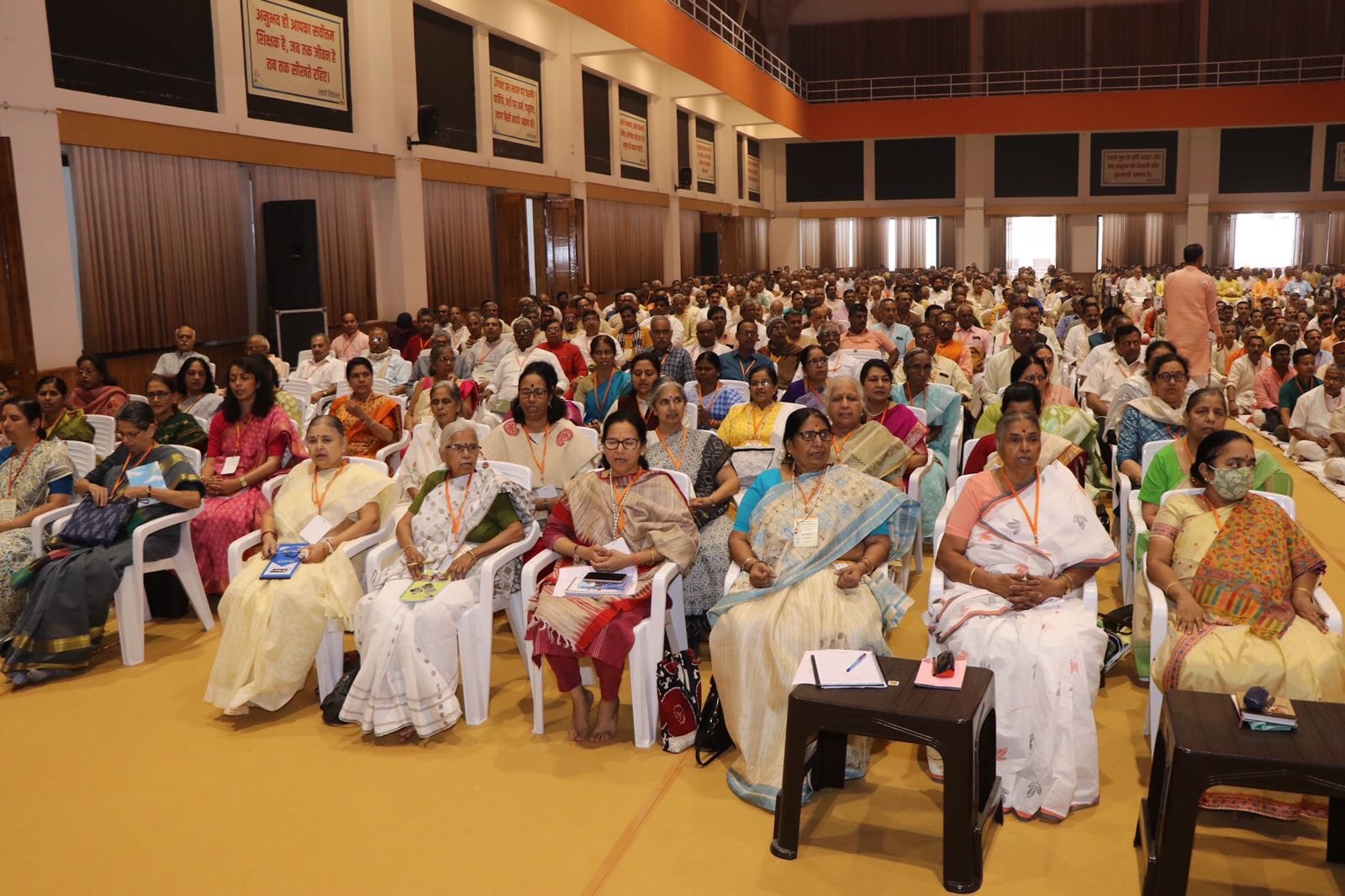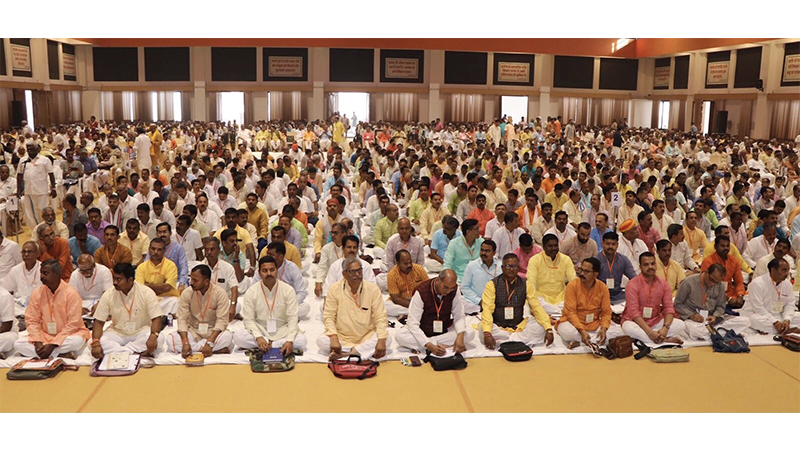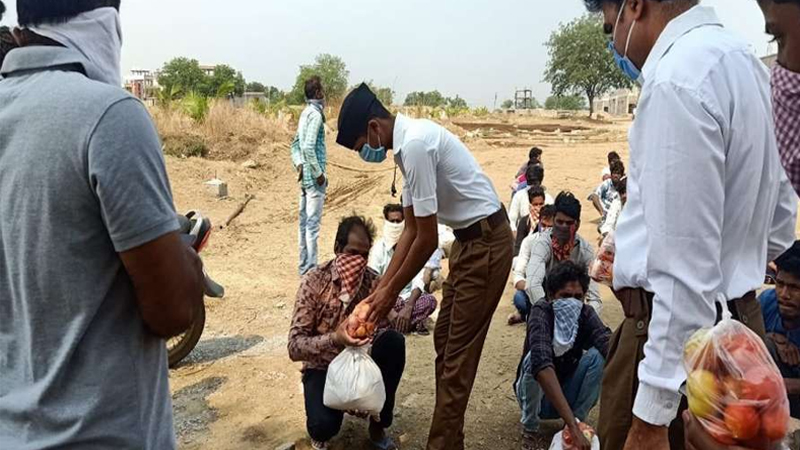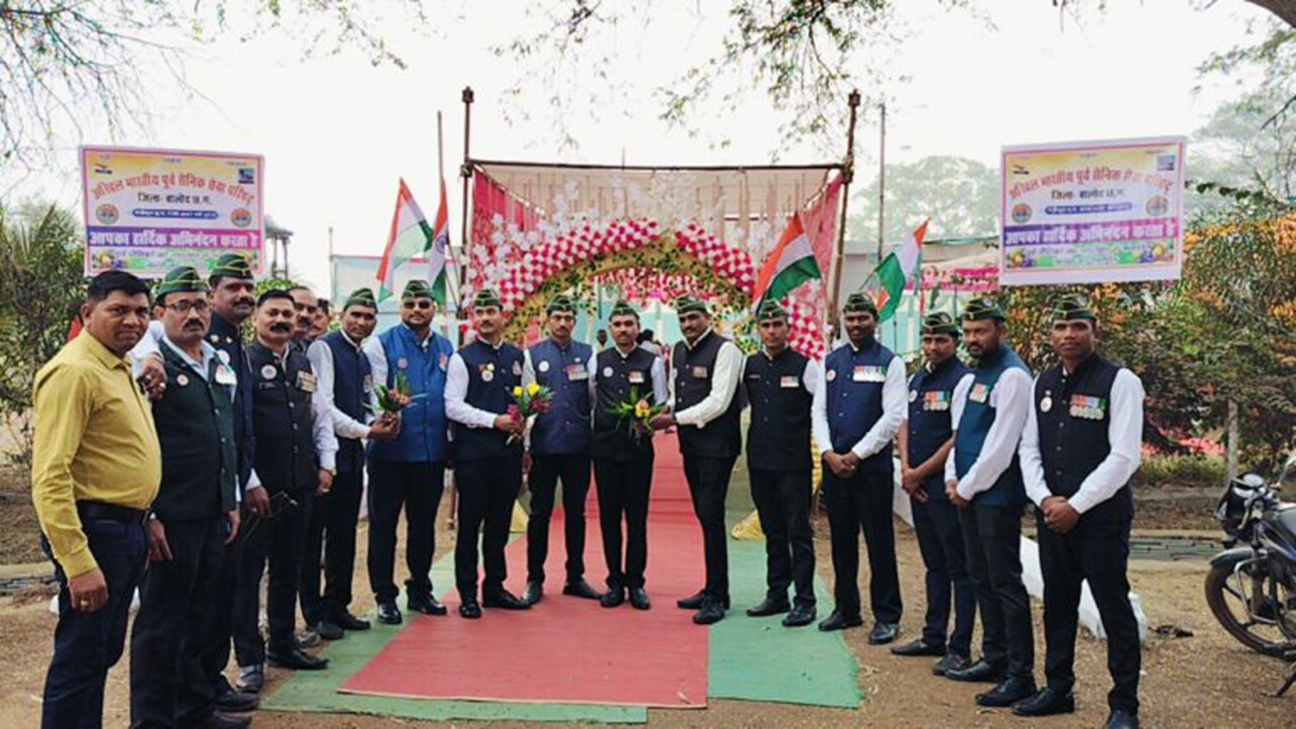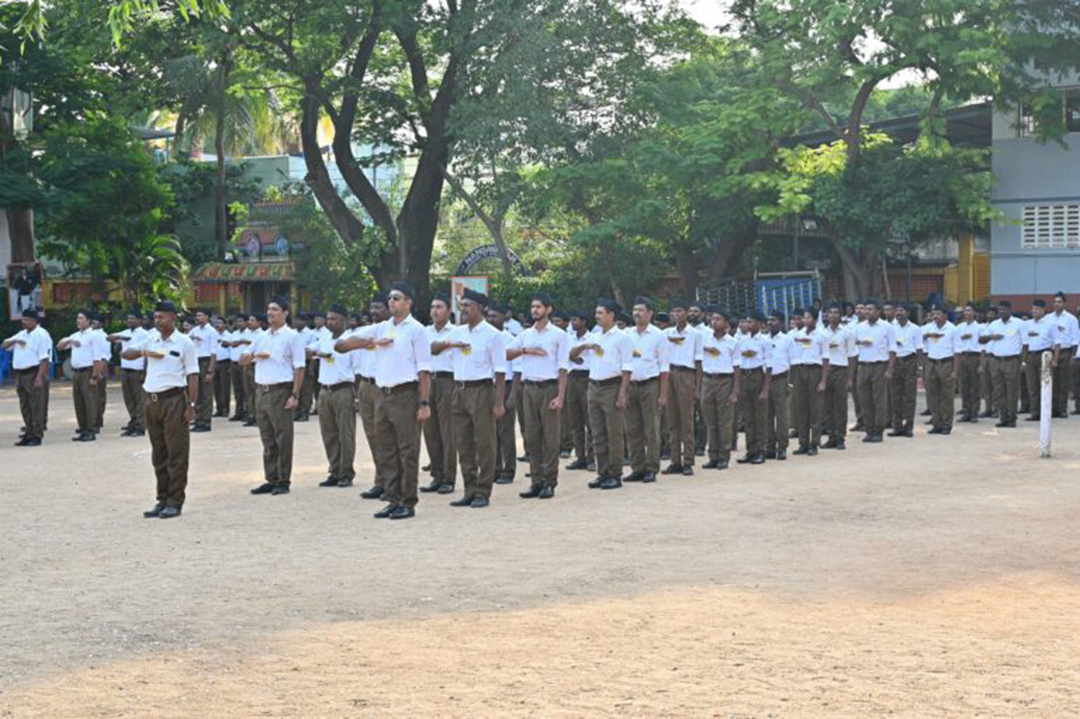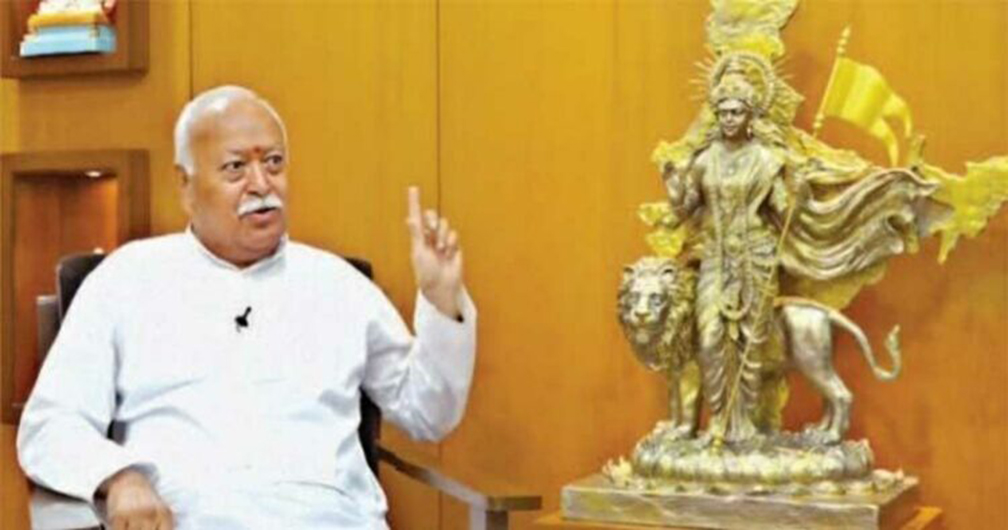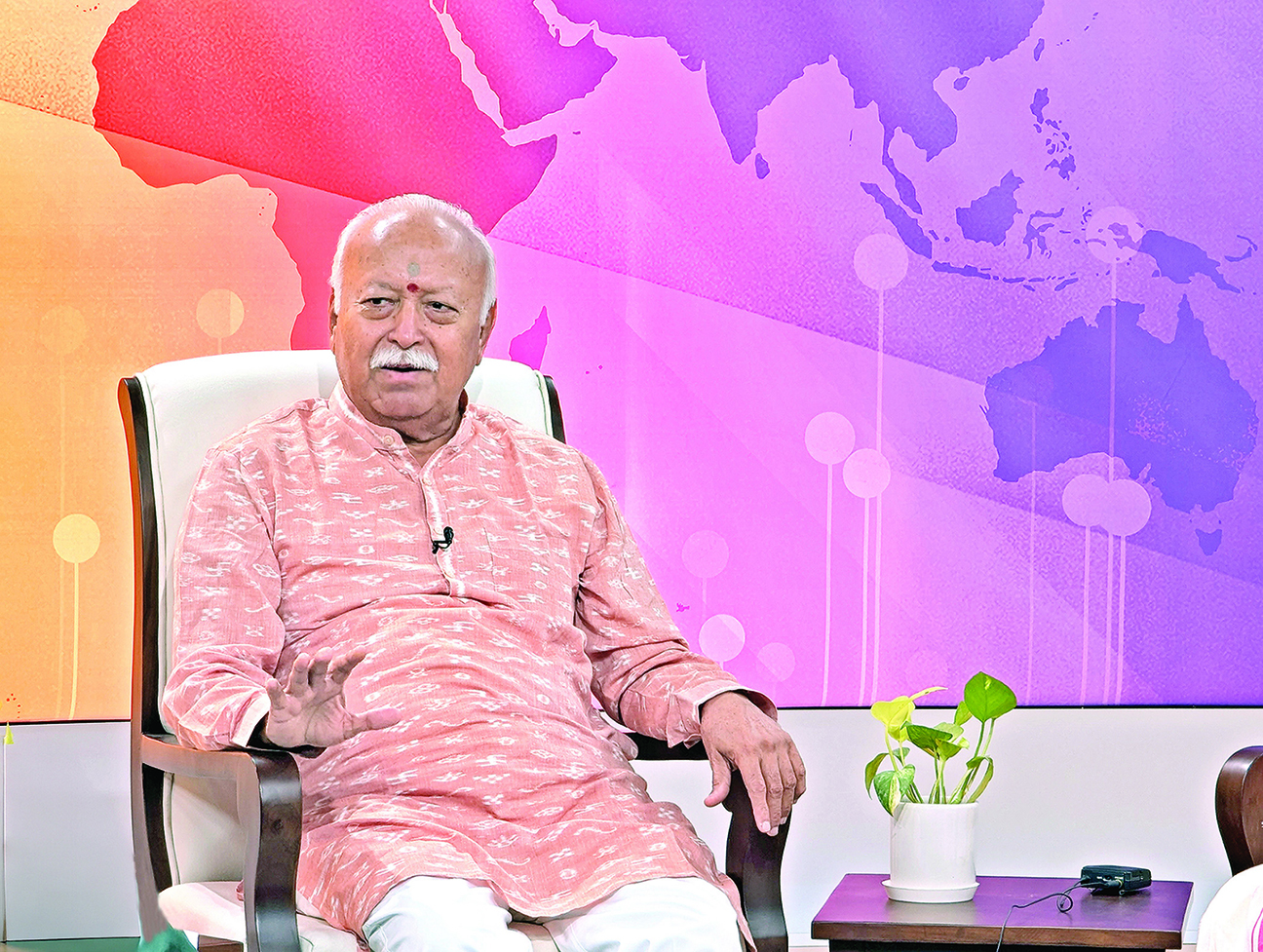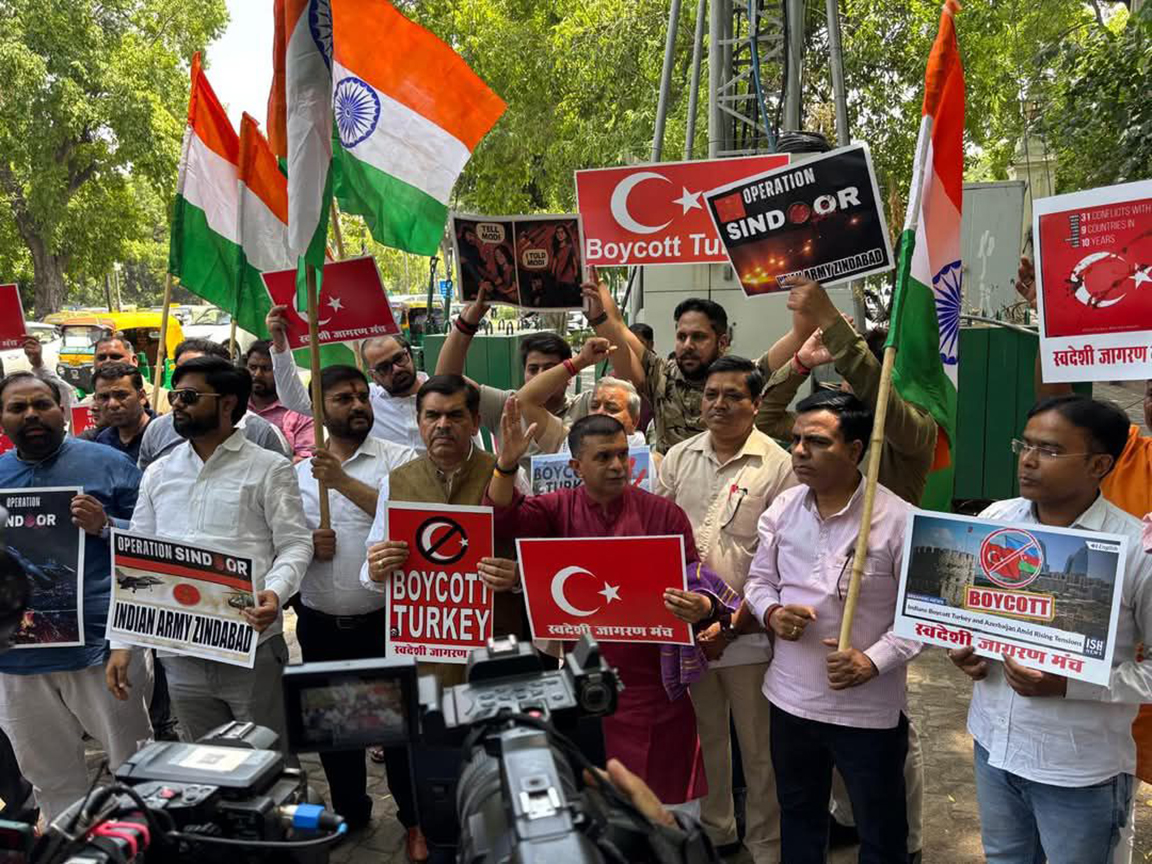RSS doesn’t conduct any poll surveys, its too busy to indulge in politics
Updated: May 7, 2024 12:44
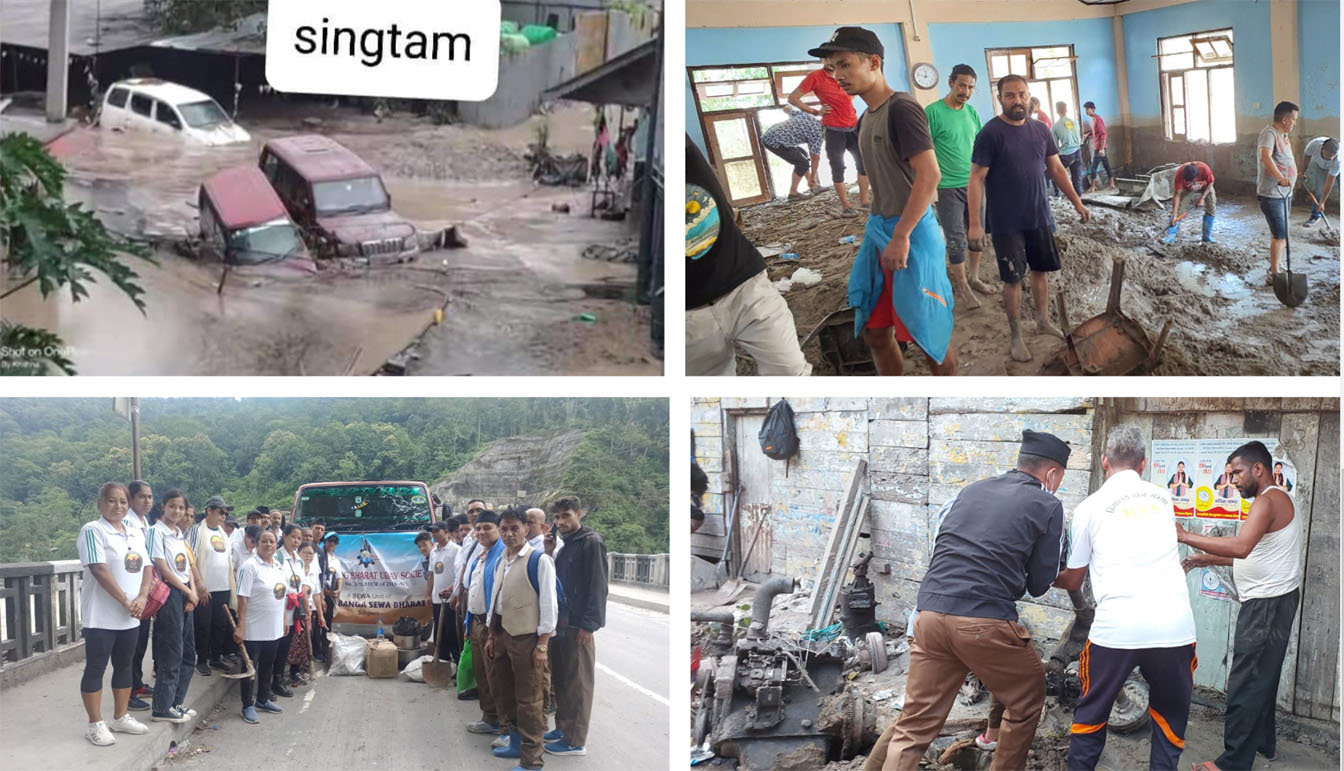
A number of posts have been doing rounds on the social media that make claims about the Rashtriya Swayamsevak Sangh (RSS) conducting an election survey for the ongoing parliamentary polls in India. Most of these posts mischievously predict that the currently ruling Bharatiya Janata Party (BJP) would fall way short of the majority mark attributing it to the so-called RSS surveys.
The fact of the matter is that the RSS does not conduct any election surveys. And it has not conducted any poll surveys this time also as it has never done so in the past.
In fact, the relationship between the RSS and the BJP has been misinterpreted more than often. This has resulted in the ‘imaginary power struggle between the two organisations. In fact, when Narendra Modi had become the Prime Minister in 2014, there was a lot of talk about whether Modi would dominate the RSS. Every time BJP wins big, the rumour mills start working overtime to project tensions between the two organisations. Every time BJP loses an election, the same rumour mills start pedaling a fake narrative that an upset RSS has not worked in the elections leading to the BJP’s loss.
These rumours are often deliberate but at times also emerge from the lack of understanding about the evolution of the relationship between the RSS and the BJP.
Days of Bharatiya Jana Sangh
The predecessor of the present day BJP was Bharatiya Jana Sangh(BJS). The BJS was set up by Dr Syama Prasad Mookerjee on 21 October, 1951. Two key factors led to the RSS supporting the setting up of BJS. First, the RSS wanted to create an alternative to the Nehruvian paradigm of politics and second, the RSS had realised after a ban was wrongly imposed on it in 1948 after the assassination of Mahatma Gandhi, there were hardly any political voices to support the organisation when its cadres were hounded and victimised.
When the ban on the RSS was lifted in 1949, there was an intense debate about the future roadmap of the RSS within the organisation. A section of the Sangh wanted the organisation to enter politics directly but the RSS top brass rejected the idea as it maintained that the permanent transformation of society can only be done through social work; a favourable political dispensation can create a conducive environment for the same but the real change in the long-run can be brought by working with society on the ground.
Meanwhile, Dr Mookerjee who had resigned from Nehru’s cabinet in the wake of the Nehru-Liaquat pact between India and Pakistan met with the second Sarsanghchalak( Chief Mentor) of the RSS MS Golwalkar in 1951. This meeting took place at the home of Nagpur sanghchalak(RSS chief of Nagpur, a city in the Indian state of Maharashtra) Babasaheb Ghatate . In addition to Golwalkar, Balasaheb Deoras and Bhaurao Deoras were also present in the meeting. Balasaheb became the third Sarsanghchalak in 1973 and it was during his tenure as the RSS chief that BJS merged into Janata Party in 1977 and when Janata Party government collapsed, the BJS was reinvented as Bharatiya Janata Party in 1980.
This meeting between Mookerjee and the RSS top brass is most significant as it laid down the foundation of the relations between the RSS and the BJS that was carried forward post-1980 between the RSS and the BJP. As a result of this meeting, the RSS not only decided to loan out some of its pracharaks (full-time workers) for organisational work to help the newly-set-up political outfit. That tradition continued with the formation of the BJP also and the RSS continues to loan its full-time workers to the party. It’s a coincidence and not by design that two of these pracharaks-Atal Bihari Vajpayee and Narendra Modi- have risen through the ranks of the BJP to become Prime Ministers of India.
The RSS full-timers that were loaned out to the BJS and now to the BJP work as organisational secretaries and joint organisational secretaries at the national and the state level. Their primary work is to help the BJP in building a strong organisational network. The RSS does not intervene in electoral politics the way it is projected.
RSS and Elections
During the electioneering, there is no directive from the RSS top brass to the cadres to favour any political party. The cadres are volunteers and they can choose to support or work for any political party. However, due to ideological synergies, the RSS cadres are more inclined towards supporting the BJP.
It may be mentioned here that the RSS has more than 60,000 daily shakhas , around three dozen organisations that are its ideological mentees and its volunteers are working in more than 2 lakh social welfare projects run for the marginalised sections of the society. This kind of organisational work leaves little room for most of its cadres to indulge in electioneering. Even while the elections are on, the RSS volunteers carry on with their organisational work as usual. The meetings, training camps and daily shakha work leave little time for an average RSS volunteer to indulge in election politics. Another unwritten rule that is followed in the RSS with no exception should make things further clear, if anyone still has any doubt. This rule is that anyone holding any political position or even membership of a political party is not entrusted with any official designation or responsibility within the RSS.
To conclude, the RSS is too busy with its own work which has long term objectives to indulge in poll surveys or any electioneering activity. It has left these tasks to the politicians while it continues to work quietly on the ground to transform the society.
